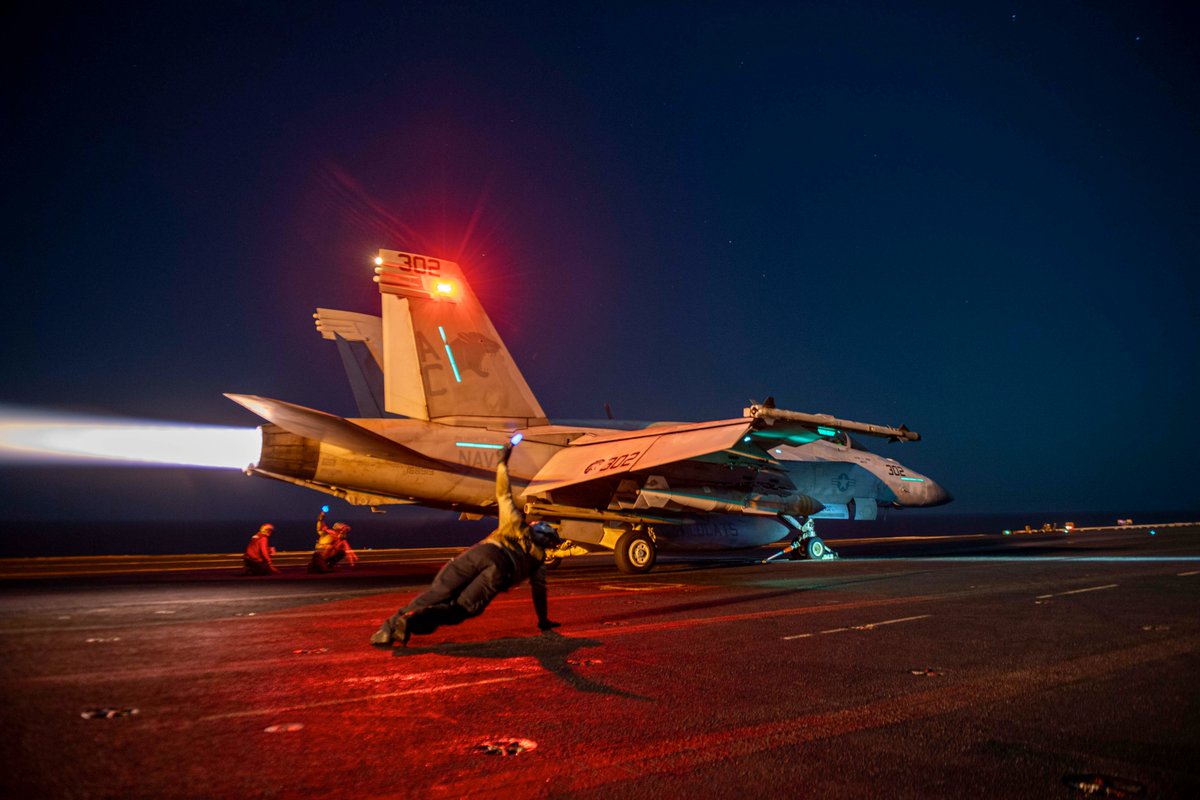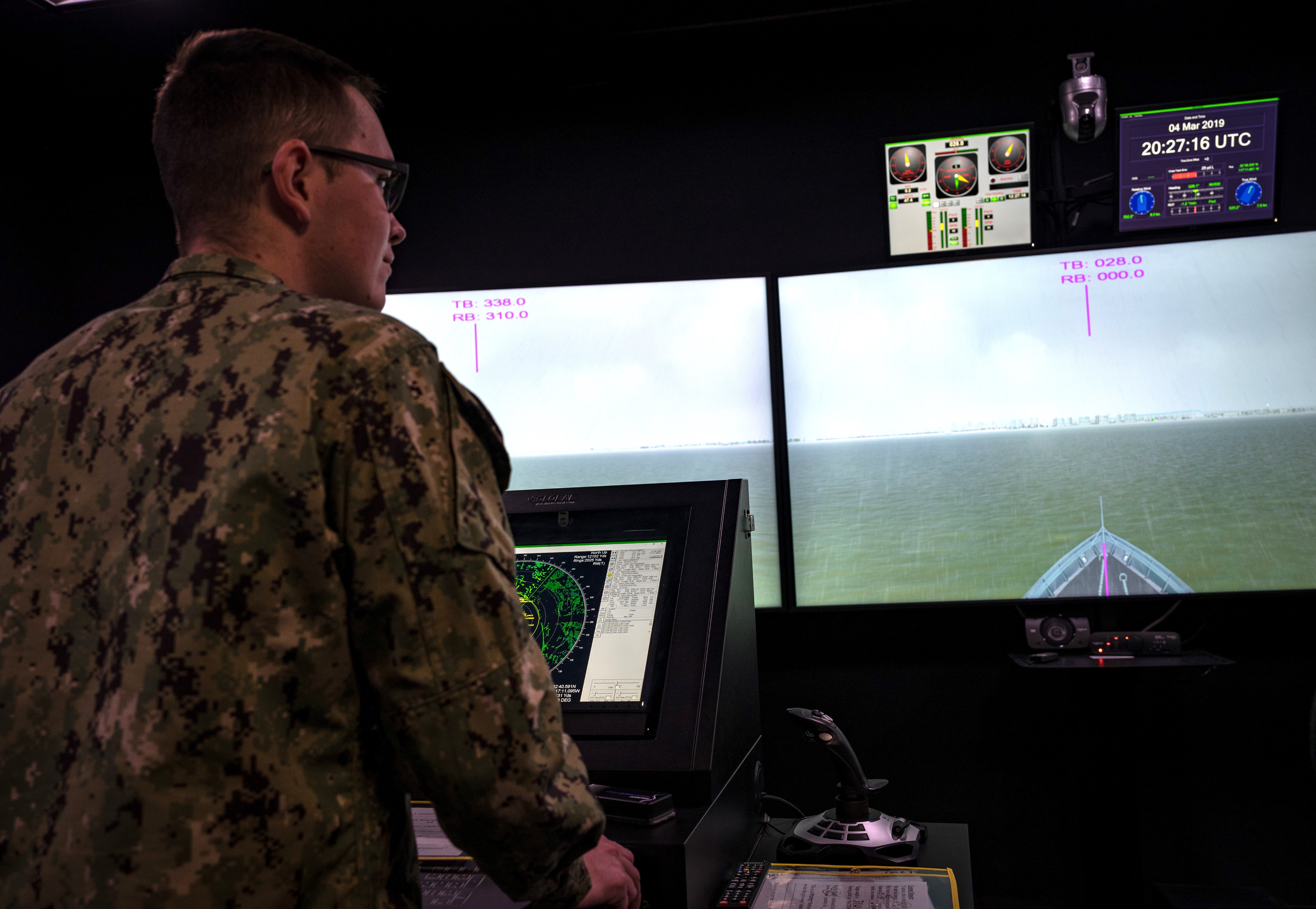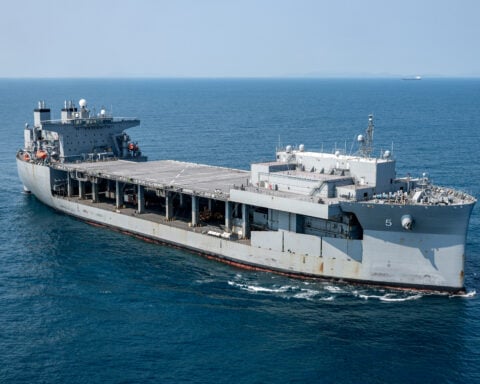
The United States and United Kingdom, with support from allied nations, struck 18 Houthi targets on Saturday, the Department of Defense announced.
The two countries, which were supported by Australia, Bahrain, Canada, Denmark, the Netherlands and New Zealand, focused on eight locations in Yemen that the Department of Defense said held underground weapons storage facilities, drone systems, air defense systems, radars, a helicopter and missile storage facilities, according to the news release.
“These precision strikes are intended to disrupt and degrade the capabilities that the Houthis use to threaten global trade, naval vessels, and the lives of innocent mariners in one of the world’s most critical waterways,” reads the release.
This is the third time the U.S. and U.K. have led coordinated strikes on Houthi targets in Yemen. U.S. Central Command has conducted several smaller strikes on Houthi weaponry.
The most recent round of strikes are in retaliation for the Houthi attacks on MV Islander and MV Rubymar, two British-owned commercial vessels, and MV Navis Fortuna and MV Sea Champion, two U.S.-owned commercial ships, according to the release.
The Houthis struck Rubymar on Monday, USNI News previously reported. The ship continues to take on water but has not sunk, according to CENTCOM. The crew was transported to a port by another merchant ship. Rubymar was transporting 41,000 tons of fertilizer when hit, which creates the ability for an increased environmental crisis, Central Command said. The damage to the ship has already caused an 18-mile oil slick.
On Feb. 18 between 9:30 p.m. and 10:40 p.m., Iran-backed Houthi terrorists attacked the M/V Rubymar, a Belize-flagged, UK-owned bulk carrier. The ship is anchored but slowly taking on water. The unprovoked and reckless attack by Iran-backed Houthi terrorists caused significant… pic.twitter.com/bU6j850wwG
— U.S. Central Command (@CENTCOM) February 24, 2024
Although the United States has now conducted three coordinated strikes and several other attacks on Houthi weaponry, the Yemen-based group continues to launch missiles and drones at ships in the Red Sea. Houthi leadership says the group is only attacking ships with connections to Israel, the U.S. or the U.K., although DoD officials disagree.
“The United States will not hesitate to take action, as needed, to defend lives and the free flow of commerce in one of the world’s most critical waterways,” Secretary of Defense Lloyd Austin said about Saturday’s strikes. “We will continue to make clear to the Houthis that they will bear the consequences if they do not stop their illegal attacks, which harm Middle Eastern economies, cause environmental damage, and disrupt the delivery of humanitarian aid to Yemen and other countries.”
Pentagon officials have previously told reporters that U.S. strikes are meant to degrade Houthi capabilities, not destroy them.
This is the third straight day of U.S. strikes on Houthi weaponry.
Earlier Saturday, USS Mason (DDG-87) shot down an anti-ship ballistic missile fired by the Houthis, according to a separate Central Command release. Central Command assessed that the missile was likely targeting MV Torm Thor, a chemical oil tanker sailing under a U.S. flag.
On Friday, between 12:30 and 7:15 p.m. local time, unidentified Central Command forces destroyed seven Houthi anti-ship cruise missiles, according to a Friday Central Command release. Forces also shot down three Houthi drones between 3:30 and 5 a.m., according to an earlier Friday release.
On Thursday, around 5 a.m. local time, Central Command forces, not identified in the release, struck four Houthi drones and two mobile anti-ship cruise missiles that were prepared to launch.





